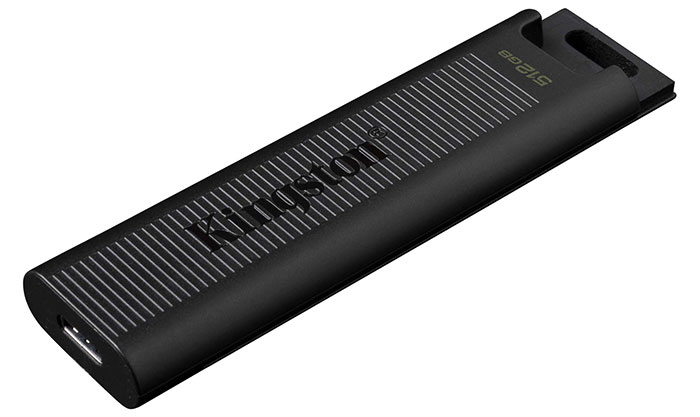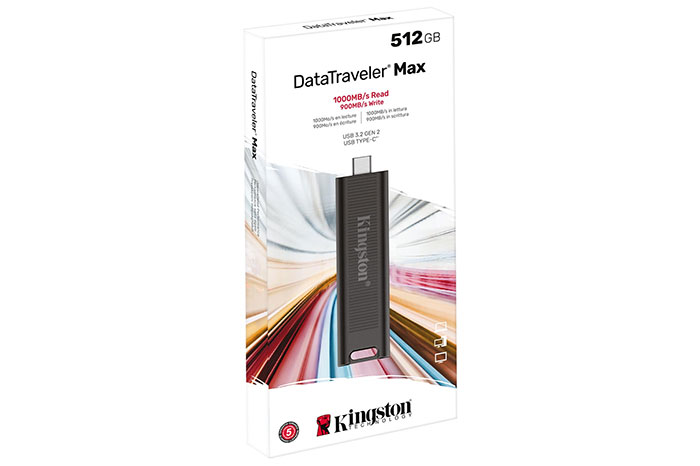Storage and memory specialist Kingston has released the DataTraveler Max (DT Max) USB Type-C flash drive. It claims record-breaking file transfer speeds for this new range of compact portable removable stick-format memory: up to 1,000MB/s read, 900MB/s write. The new DataTraveler Max is being made available in 256GB, 512GB, and 1TB capacities.

"DT Max offers industry-leading speeds and uncompromised storage space to enable consumers to create and keep up with today's content demands," said Carissa Blegen, flash product manager, at Kingston. "We deliver unparalleled performance that our customers have come to know and expect, and with this launch we are proud to set a new bar for USB-C flash drives."
Kingston provides the DT Max in a plastic ridged casing. On one end there is a cutout for connecting lanyards, key fobs etc. On the other end is the retractable standard USB Type-C male connector. The connector is extended and locked into place with a slide of a switch on the underside of the stick. Once you are finished, you can detach the drive from your device and slide the connector back into the shell to minimise the chance of damage or getting it filled with gunk/debris.
On the topic of the physical nature of this device, it is worth highlighting that the DT Max measures 82.17 x 22.00 x 9.02mm (weighs 12g). The dimensions make it nearly twice as long as the various thumb drives I have within reach (closer to the size of an actual big human thumb). The drive casing features an LED status indicator light.
Kingston doesn't reveal any technical data about the storage tech inside the stick. However, a technical piece of info you must bear in mind if you are looking at these storage sticks is that to get the full potential out of the transfers speeds, you will need a PC/laptop (Windows, Mac OS, Linux, Chrome OS supported) with a USB Type-C connector based on the USB 3.2 Gen 2 Standard.

The 1,000MB/s read and 900MB/s write speeds appear to apply to all three capacities. The Euro prices for these portable storage devices are as follows; 256GB - €108, 512GB - €156, 1TB - €265. Buyers get a five-year warranty.






